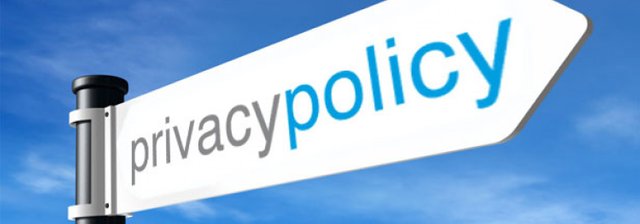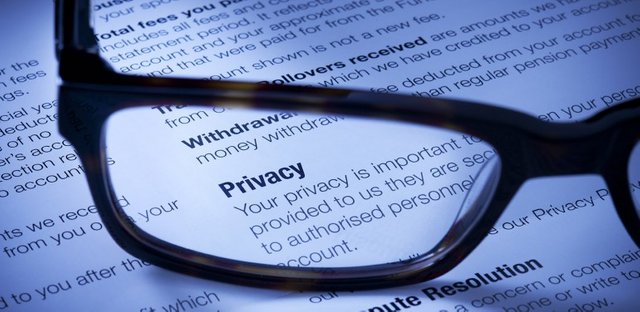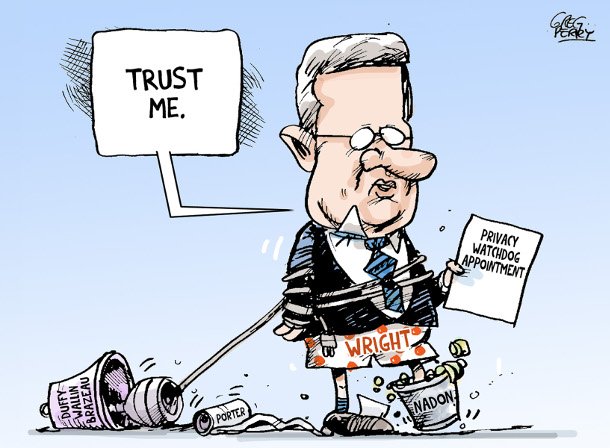Privacy, The Law & Ethics: When State Dictate Conflicts With Moral Judgement
The conduct of a professional when dealing with clients is governed by many factors. Such factors may include codes of ethics stipulated by professional associations, an individual’s moral framework and the laws that govern the region in which the professional conducts their business.

Reference
In this post, let's explore how differently the issue of privacy is dealt with in different legal jurisdictions in Australia and explore the potential dilemma that arises when ethical and legal frameworks seemingly conflict. Specifically, let's look at the issue of confidentiality; that being the ethical and legal responsibility of, say, a therapist, counselor or doctor as a means by which examples of such professional dilemmas can be explored.
In the 2012 book Life-span human development by Sigelman & Rider, confidentiality is said to be a means by which information is kept between two parties with no disclosure to others. Confidentiality is determined by two frameworks, ethical and legal. Ethics is fundamentally related to moral principles that one abides by. Legality is the framework of rules that is determined by the appropriate governing body along with associated punishments.
Confidentiality is a situation in which sensitive information is treated with a level of respect so as to protect the interests of a particular party. It is important to recognise that the information in question may take many forms and some examples include an individual’s private information such as residential address in paper form or digital.

Reference
Part of the confidentiality process is also making sure that the owner of the information is aware of the information taken, gives consent for any disclosure and understands the limitations of confidentiality. It seems self-evident that a professional practitioner of any kind should be expected to respect a client’s confidentially as stipulated by both ethics and law however there are occasions where conflicts may arise.
The Information Privacy Act of 2009 (http://www.premiers.qld.gov.au/tools/assets/information-privacy-act-2009.pdf) is the piece of legislation that governs the “the fair collection and handling in the public sector environment of personal information” within the state of Queensland, Australia. Some points of interest include the manner by which and the type of personal information that can be obtained.
An example from the act is that a professional may collect only information that is “necessary for 1 or more of its functions” and the collection of information only by “lawful and fair means and not in an unreasonably intrusive way”.

Reference
The act lists seven broad conditions that allow the disclosure of personal information. These include “reasonably believes that the use or disclosure is necessary to lessen or prevent a serious threat to an individual’s life, health, safety or welfare”, “reason to suspect that unlawful activity has been, is being or may be engaged in” and even “the protection of public revenue”.
Conversely, the following information from the Western Australian government speaks to the differences that can be observed in the space in the same country.
The state public sector in Western Australia does not currently have a legislative privacy regime. Various confidentiality provisions cover government agencies and some of the privacy principles are provided for in the Freedom of Information Act 1992 (WA) overseen by the Office of the Information Commissioner (WA).
The Tasmanian Personal Information Protection Act (2004) stipulates similar conditions for the release of personal information (in fact the three examples provided above from the Queensland legislation are identical in the Tasmanian act). There are however differences between the acts. For example under Tasmanian law, there are numerous references to the assignment of unique identifiers to personal information.
A unique number for example must not be assigned to an individual’s data unless certain conditions are met and the unique number assigned by another personal information custodian must not be copied or reused.

Reference
Where dilemmas may appear in confidentiality are when the limitations of confidentiality may appear; such as a court order of a client’s interactions in the counselling sessions. The dilemma accurse as the counsellor’s primary care is for that client but has or may have been given a subpoena. In this case
An example of a possible conflict between ethics and the law could be derived from the prior mentioned condition of information release; specifically for the reason of protection of public revenue. Having to disclose information about a client under law for reasons of financial matters may conflict with a counselor's assessment of their moral obligation to a client’s well-being.
A particular client for example may be experiencing financial hardship and the disclosure of their information to authorities may have the anticipated result of worsening the client’s mental state. In this instance, a counselor may be torn between legal obligations and a desire to only act in the positive interests of their client.
In my opinion, the law is a very poor tool for implementing any sort of moral framework. The very fact that financial protection of the state is listed at all should be an indication of this. As professionals however, workers in fields who deal with regulated data collection need to be aware of the law as it has the power to strip workers of their income and more.

Reference
Have you ever come upon an instance of conflict between the law and what you know to be "right"?
I've spent 10 years tutoring in ethics courses at university. So I can confirm that yes, there are plenty of ways that what's legal (or legally required) potentially conflicts with what's ethical.
You wouldn't be Dr Samuel Douglas from Newcastle Uni by any chance ?
Haha, yes, that's me. Have to get my profile pic up.
Welcome to steemit mate !
Hi @samueldouglas. Thank you for the reply and my apologies for the delay in addressing it. This is a fascinating field in many ways. Life is messy and so to is the determination of what is "right". I'd be interested in how you personally or professional reconcile the conflicts that arise between the law and one's moral compass; especially given that going against the former is usually met with punishment and going against the latter can have more subtle or deferred consequences.
No problem. It's a tricky area, and I don't think there's any one ethical system that applies to all situations, so there's no easy answer. I'm going to write more about this in 2018 - a big part of my research I'm involved in this year is around dilemmas in professional ethics and how to develop better training tools to help people deal with them. For now, I'll say this: That you can even see/recognise these conflicts and dilemmas is a really great start and puts you ahead of a lot of people. Looking forward to discussing this with you over the year.
Hello Samuel, I'll be looking forward to reading your works throughout the year, I've become very interested in these issues lately. Welcome to Steemit.
Excellent post, i fear data collection in the future will be used to map everyone's habits to the point of predictive enforcement of new legal statutes without any complainant. For example the data in your sat-nav or your mobile phone will be sent to the police and you will then be sent speeding fines for any infringement.
You've hit the nail on the head @realtreebivvy. This is exactly something that has concerned me for some time now. Imagine the increase in revenue and the reduction of enforcement costs that the state would benefit from if we all by carrying our own smart devices (that we pay for ourselves with taxed earnings) are the instruments of our own punishment!
I sometimes turn my phone off or leave it at home when heading away from home. With modern cars it's harder to mask activity but, for that, I have a motorcycle and a vehicle that's not GPS equipped.
Furthermore, the modern vehicles that interact with social media and the like contain all sorts of personal information... and they're internet aware. I'm not happy relying on the ethics and laws at play at the moment in our society so information protection is something that I take on as a personal task where possible.
Nice article @nolnocluap! :)
It's interesting how much the privacy issue has raised around the world after the introduction of digital technologies. I am thinking about a world that will be pervaded by AI assistants in every work environment.
Let's say that AI could become a good consultant thanks to its algorithms, how politicians want to regulate the way these computers have to select what to record from what is illegal to record in order to maintain some sort of workers/clients privacy?
You raise a good point @thetranshumanist. Algos have no capacity for moral judgement and no ability to decide to go against the law for the greater good. If anything, they will be implemented to be almost entirely law based, and would be reviewed for compliance.
I'd not thought of that aspect of the discussion. Thanks for bringing it to the discussion. It makes me even more concerned for the future to think that the human element is likely to be removed from human engagement in the context of important issues such as these.
I like your response to this article
Thank you @apiprincz! If you are interested in this kind of discussions, follow me and stay tuned :)
informative article thanks...
My pleasure @antorbd
Although ethics is often operationalized by a society's laws, ethics differs dramatically in its foundations, framework and purpose.
Hi @jacoboram. Thanks for the reply and my apologies for the delay in getting back to you. I'd propose that any ethical enforcement that may come from a state imposed law is purely a side effect or a secondary consideration at best; subordinate to what benefits the state.
Interesting and informative article.
Hey thanks @vik3!
Wise words, I find it amazing how many people work in fields where they must clearly know the law, yet it seems like when the word law is brought up it becomes to hard for them so they develop an ignorance of it.